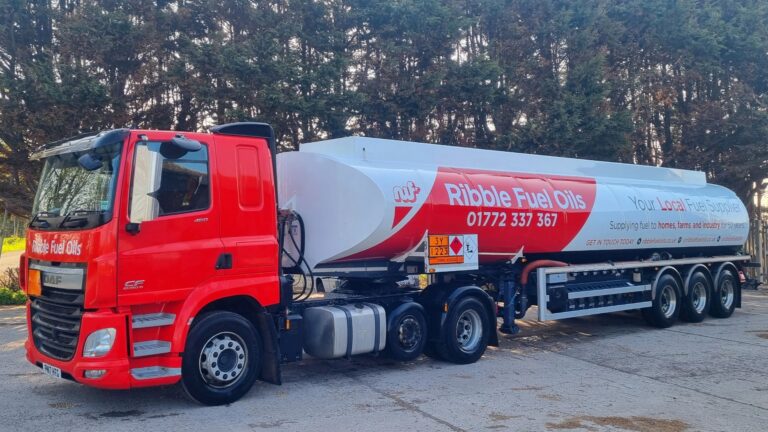
Claudia Weeks, Community Content Lead for Fuel Oil News, asked Ryan Finnigan, an experienced tanker driver from Ribble Fuel Oils, for his Top Ten Tips for Tanker Care.
Life on the road
Ryan gave some background to his role as a tanker driver: “I deliver all types of fuels to the commercial, domestic, and agricultural sectors. I’ve been driving tankers for around 7 years, and I drive a range of vehicles from 6 or 8 wheelers to the artic.
“A typical day varies; a commercial delivery day involves more travelling and larger drops. A domestic delivery day can be up to 25 drops– that was a busy day!
“Most days are challenging because of excessive traffic or finding the location of certain jobs or the tank locations, but having experience does make things easier. I find that experience of an area and jobs makes such a huge difference to speed and performance – it almost becomes second nature.”
Top 10 Tips for Tanker Care
A skilled and knowledgeable tanker driver, Ryan is quick to point out that “clean and well-kept wagons benefit a company!” Ryan has prepared his top tips and reasons for tanker care and shares them here with Fuel Oil News:
1. It’s easier to identify defects with a clean wagon. Exterior cleaning is vital for appearance and for roadworthiness.
2. Customers see that you take pride and great care over the vehicles which are representing the company.
People often mistake my tanker for a new wagon. I can’t complain about that – especially as it’s over two years old! It’s also worth noting that, when the tanker is sold or returned, it will retain as much of its value as possible if it’s kept in good condition.
3. Regularly cleaning the glass windows and windscreen, including the mirrors, reduces blind-spot risks. (I always keep a microfiber cloth and Rain-x window cleaner in the wagon).
4. Cleanliness on the inside of the tanker is also hugely important; it is my office for up to 12 hours a day.
Getting fuel on your clothes or person along with rain and mud daily isn’t great. Having a clean place to dry off and clean up helps. (I also have white roll and wipes in the wagon to help too!)
5. Cleaning the tanker at the end of a shift can be time consuming and messy work – getting soaked at the end of a hard shift isn’t fun. However, coming to work the next morning and getting into a clean vehicle is totally worth it.
By cleaning the tanker every day, you keep on top of it. If you let the dirt build up, then it takes a lot longer to get clean! I recommend using Meguiars detailer spray and Rain-X window cleaner.
6. PPE and spare items. It’s so important to have PPE and spare items ready to go in the tanker. I always have spare work gear and a towel and always take two bottles of eye wash; in case something happens like a tank rupture or gauge failure causing a spill.
7. Keeping the delivery metre clean is vital. It aids the use of it as well as improving longevity. This also applies to other vehicle controls.
8. Always make sure you have the right tyres if you can. Tyres for off-road use are also desirable when doing a lot of site work and when visiting farms. You need grip not slip!
9. Impressions count. The mechanics that maintain the vehicles will thank you (maybe not always verbally, but it will certainly be noted!) Also, if other drivers use the same tanker, then they will be happy too!
10. There are also things that make the job easier such as locking diffs, double-drive axles and other driver aids. In-cab technology has its advantages but having a good working knowledge of your vehicles and not always relying on technology can also help you!
A huge thanks to Ryan at Ribble Fuel Oils for his superb tips and advice for tanker care.
